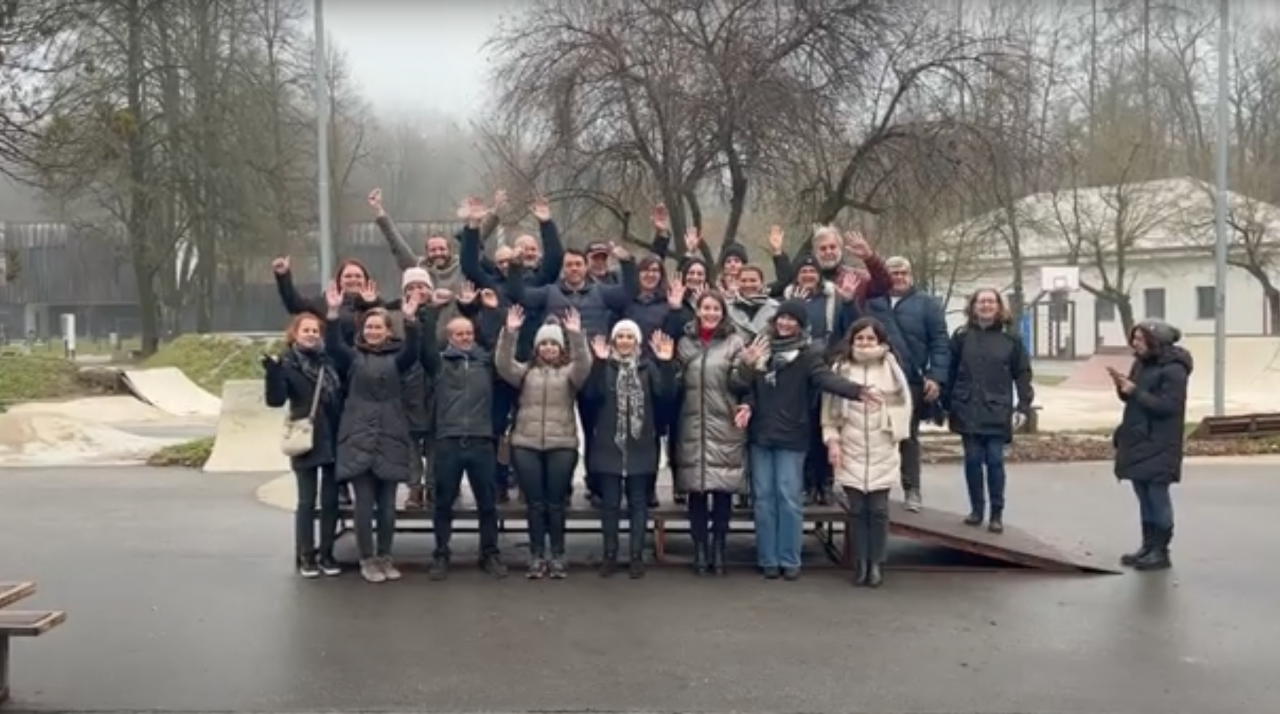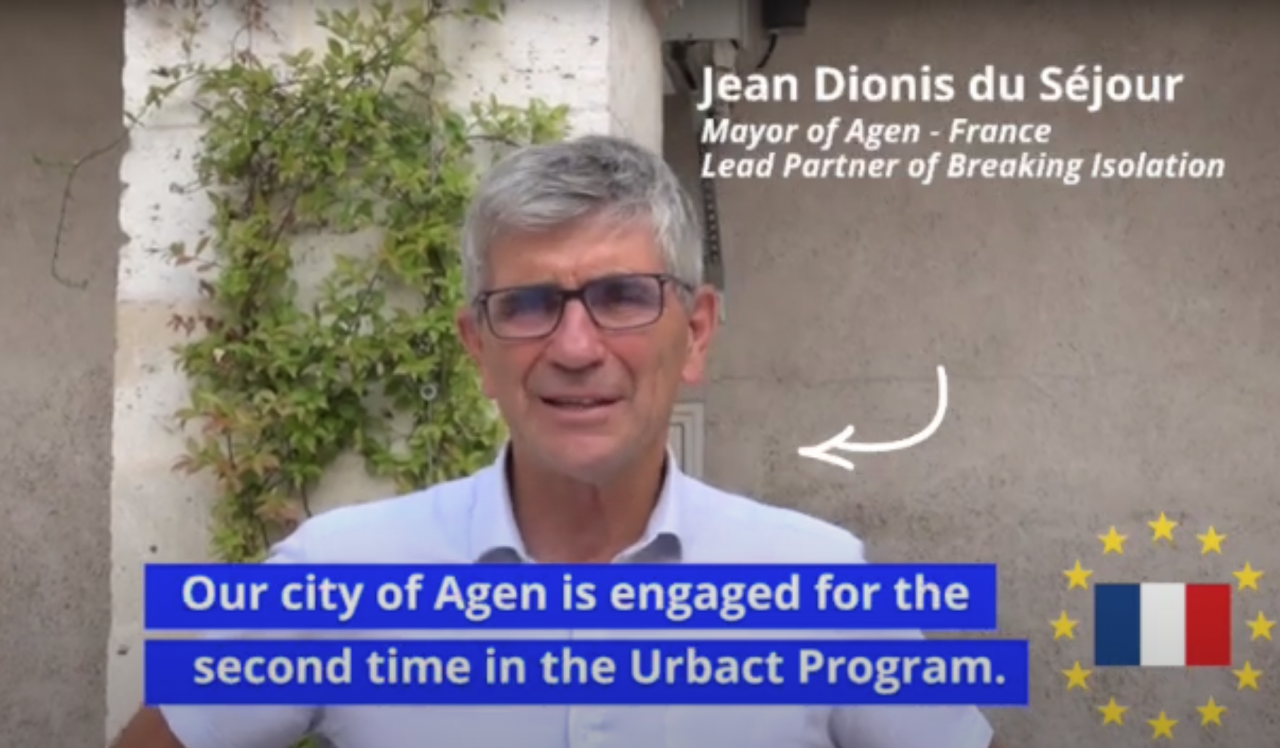More and more people, today, suffer from social isolation. True isolation (not a desired break from family and friends). The World Health Organization, in November 2023, just decided to launch a special international Commission on Social Isolation and Loneliness, because: ‘Anyone, anywhere, can be lonely or socially isolated. Across all ages and regions, loneliness and social isolation have serious impacts on our physical and mental health, and the well-being of our communities and society [...] Social isolation and loneliness are widespread, with an estimated 1 in 4 older people experiencing social isolation and between 5 and 15 per cent of adolescents experiencing loneliness [...]’. Not only more and more people suffer from social isolation, but they also experience it in all age groups. And numbers are rapidly growing. Some describe social isolation as a growing ‘silent epidemic’.
But, what do we really mean by ‘social isolation’ ? Well, social isolation is a situation in which a person suffers from a long term deficiency of social relations, both in terms of quantity and quality. This definition is key because it highlights the fact that the isolated person is in a situation of suffering (it’s not an enjoyable situation), due to a long term lack of relations (we are talking about months and years), in terms of quantity (the number of social interactions you have, ranging from a phone call with your family, a drink with a friend, or a chat with your neighbour or postman) and quality (who do you care for and cares for you, who can you count on, who do you trust to share your problems/feelings with, etc.). A person who suffers from isolation has, basically, near to no social relation, whatsoever, or at least none that are really fulfilling or satisfying. You are alone. Desperately alone.
Jean Dionis, the Mayor of the City of Agen (France), lead partner city of the Breaking Isolation network, told the founding story of this network to all cities partners on the day of the Kick-off meeting :
In Agen, on December 2020, there was a terrible event. One that deeply shocked the mayor of Agen. A woman, age 68, was found dead in her apartment after 2 years. She lived 200 meters away from the City Hall. Dead for 2 years. No one noticing or reporting her death. No family, no friend, no neighbour, no administration, no medical staff, no one who realized they had no news from that woman.
This short story profoundly shocked the mayor and convinced him that cities needed to take action against social isolation and loneliness. The City of Agen (former lead partner of a previous network on citizen participation called Active Citizens), decided to launch an URBACT network on this topic of social isolation : Breaking Isolation.
After publishing the concept note on the URBACT page, the city of Agen received over 30 applications from cities all over Europe willing to join their network on social isolation, proving the importance of the topic. The City of Agen, decided to prioritize cities of similar sizes, meaning small and/or medium sized cities. In the end, the Breaking Isolation network was formed and got approved, with 10 cities in 10 EU countries!
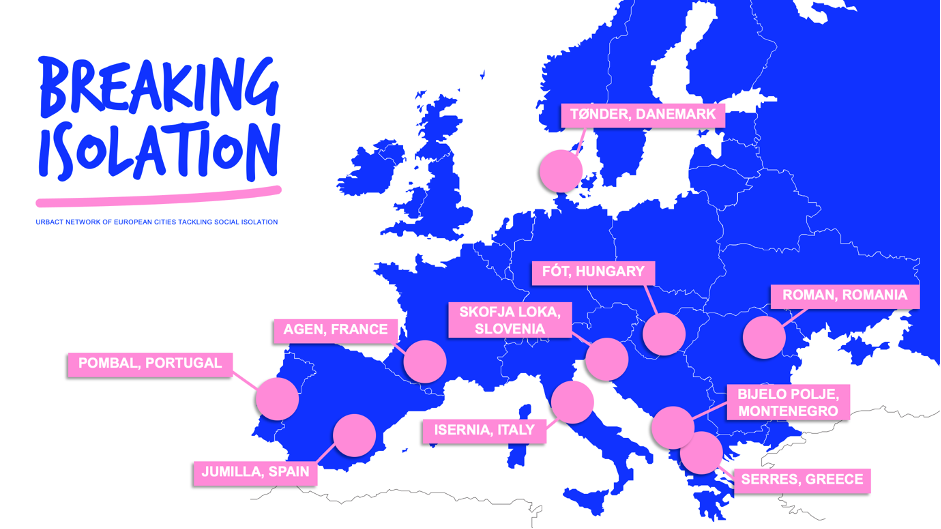 The Breaking Isolation network is composed of: the City of Agen in France, the Municipality of Bijelo Polje in Montenegro, the City of Fót in Hungary, the City of Isernia in Italy, the Municipality of Jumilla in Spain, the Municipality of Pombal in Portugal, the Municipality of Roman in Romania, the Municipality of Serres in Greece, the City of Skofja Loka in Slovenia, and the Municipality of Tønder in Danemark.
The Breaking Isolation network is composed of: the City of Agen in France, the Municipality of Bijelo Polje in Montenegro, the City of Fót in Hungary, the City of Isernia in Italy, the Municipality of Jumilla in Spain, the Municipality of Pombal in Portugal, the Municipality of Roman in Romania, the Municipality of Serres in Greece, the City of Skofja Loka in Slovenia, and the Municipality of Tønder in Danemark.
The literature review conducted for the baseline study, reveal the gravity of social isolation:
- - Social isolation increases the risk of developing dementia by 40 to 50%
- - Social isolation increases the risk of early death by 25% (which is comparable to tobacco consumption or alcohol consumption – there are national awareness-raising campaigns against tobacco and alcohol but none about social isolation –)
- - Social isolation increases the risk of heart stroke and cardiovascular disease by 30% (due to the benefits of social interactions both psychologically and physically on stress reduction, lower blood pressure, etc.).
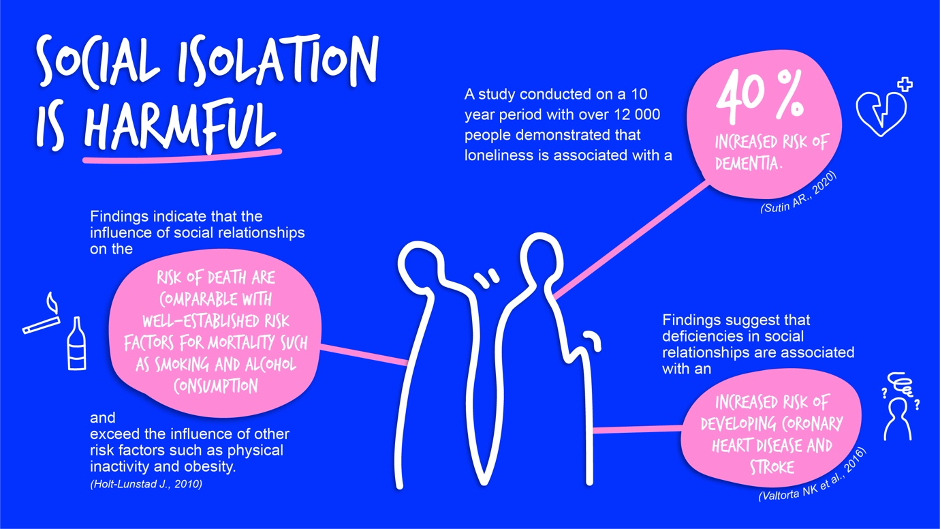
The study visits throughout the network cities also show that:
- People living in urban centers tend to be more easily isolated than those living in smaller villages (as people know each other more because of very little population)
- People suffering from social isolation often combine multiple factors of isolation: death of a loved one (or couple break up), unemployment/retirement, mental health issues, physical impairments/disabilities, poverty, domestic violence, living remotely (away from family and friends), addictive use of social media, addictions to drugs/alcohol/gambling and the lack of social skills
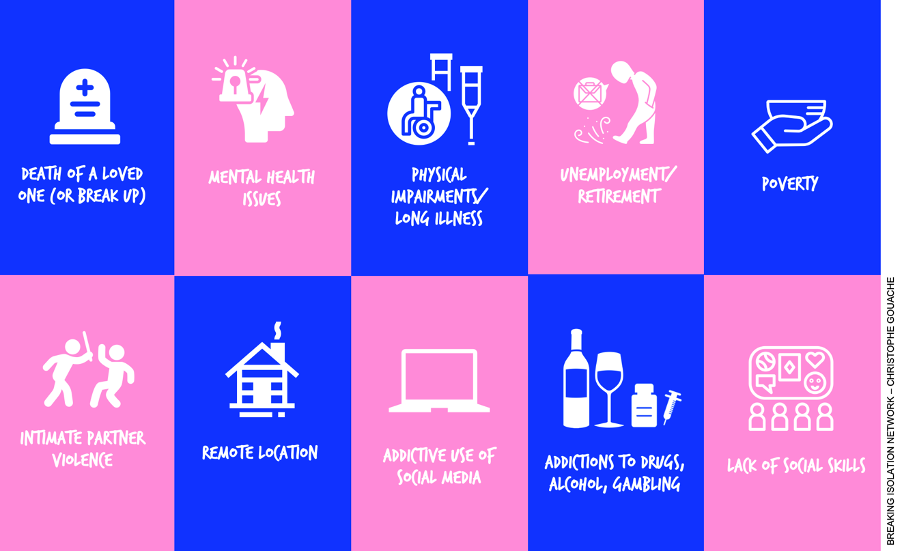
- - People suffering from social isolation don’t necessarily identify themselves as socially isolated and easily enter a vicious circle : indeed they often deny their situation (because of shame) and tend to convince themselves (and sometimes people around them) that their isolation is actually their choice, that they’ve decided to isolate and stop socializing. The problem is, then, that the less a person socializes, the less the person is able to trust social relations. This leads to a growing distrust towards everyone, even sometimes familiar/close relatives. And, inevitably, this reinforces even more the isolation of the person. Sometimes, this situation makes the isolated people become more and more ‘sour’ or ‘cantankerous’ when interacting with others, leading again to more isolation.
- - Isolated people tend to shut off: they stop letting anyone step inside their home, close their curtains and/or shutters of their home, don’t engage with anyone stranger to them, etc.
- And finally, isolated people tend to let go of their own self-care : Neglecting personal hygiene, neglecting their home (accumulating mess, reduced cleaning), neglecting their health (stop going to the doctor, not doing medical check-ups), neglecting healthy food habits (proper nutrition, weight excessive loss or gain), etc.
The study visits, the literature review, the World Health Organization’s decision to launch a dedicated Commission on social isolation, everything confirms the importance of the challenge of the Breaking Isolation network. As Julianne Holt-Lundstad and her co-researchers [1]conclude: ‘Social relationship–based interventions represent a major opportunity to enhance not only the quality of life but also survival.’
We need to socialize more, to share more, to care more. We need to reinforce social ties, to make sure no one is left out, alone, in the dark. And to do so, we need to explore all possibilities, all tools, all enabling policies...
Opening up new public services? Developing new social policies? Stimulating citizen-based community support? Enhancing peer-to-peer solidarity? Rethinking urban planning to support socialization? Installing new collective social practices? Creating new digital leverage to provoke local social relations? The Breaking Isolation network will have two years to explore the best ways to break isolation, so, stay tuned… and connected.
[1] Holt-Lunstad J, Smith TB, Layton JB (2010) Social Relationships and Mortality Risk: A Meta-analytic Review. PLoS Med 7(7): e1000316. https://doi.org/10.1371/journal.pmed.1000316

